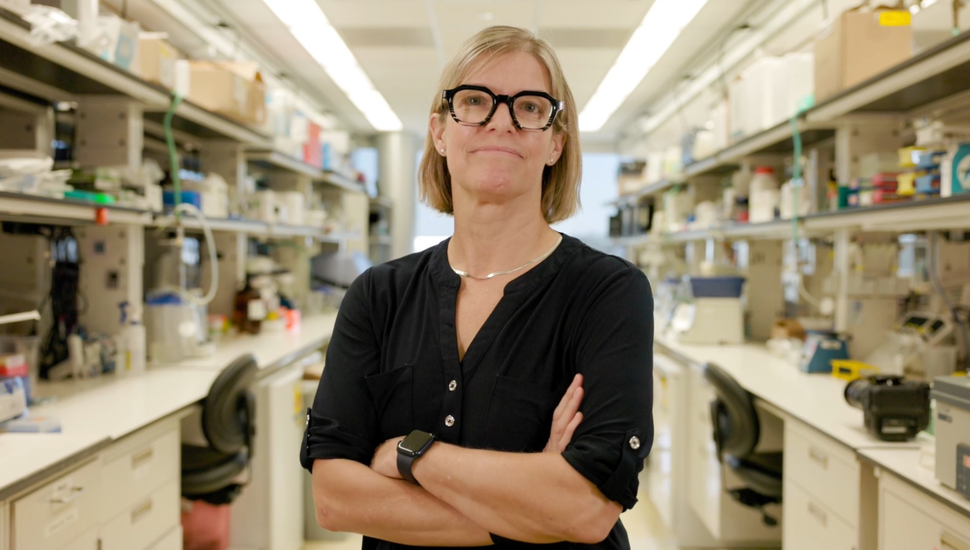Dr. Jennifer Wargo is an Endowed Professor of Surgical Oncology and Genomic Medicine at MD Anderson Cancer Center. Her research examines the role of the gut microbiome in cancer immunotherapy response.
Dr. Wargo’s interest in the tumor microbiome was kindled by a lab mishap. Cancer cells being used in experiments were contaminated with bacteria known as mycoplasma. Despite the initial devastation of this finding, Dr. Wargo explained, “We found the infection conferred resistance to treatment with chemotherapy. It turned out the bacteria in the cells were breaking the chemotherapy down into an inactive form.” This discovery helped her see the microbiome’s role in response to cancer therapy and spurred her research in this area.
Research from Dr. Wargo’s lab has shown microbiome composition is a key determinant of cancer immunotherapy effectiveness. She discussed her findings about the link between the gut microbiome and melanoma treatment: “If patients had a more diverse gut microbiome, they were more likely to respond to immunotherapy.” With this information, she believes clinicians could make educated decisions about immunotherapeutic approaches for patients with melanoma or modulate the microbiome to make anti-cancer therapy more effective for an individual patient.
Another aspect of Dr. Wargo’s research is exploring mechanistic interactions between diet and response to cancer treatments. Her lab is examining the role of dietary habits on melanoma therapies, and they found that, “Patients receiving immunotherapy, if they reported sufficient dietary fiber intake, were more likely to respond to treatment.” However, she believes caution must be taken in examining interactions between diet, the microbiome, and immunotherapy response, which need to be studied in a reproducible manner.
When describing the importance of her work, Dr. Wargo said, “This research has global implications because the gut microbiome is also tied to diet and quality of life.” When asked about the future of microbiome research, she replied, “I think we will be able to find common denominators within the microbiome contributing to the overall state of health and disease.”
